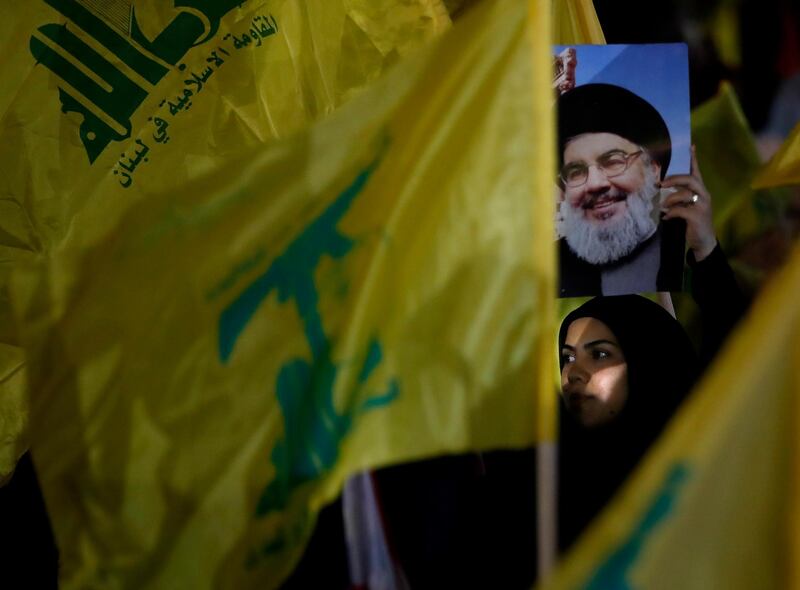The US Senate cleared two major bills sanctioning Lebanese militant group Hezbollah, passing both unanimously with bipartisan support.
Lawmakers sent the “Hezbollah International Financing Prevention Amendments Act of 2017” (HIFPAA) to President Donald Trump's desk, who is expected to sign in it into law in the coming days.
The HIFPAA and the “STOP Using Human Shields Act” (known as STOP) unanimously passed the US Senate, clearing the way for sanctions that would target the Iranian-funded group.
The HIFPAA legislation will go after foreign individuals and companies that voluntarily provide financial, material or technological support to Hezbollah and its affiliates. It targets Hezbollah-controlled social and financial organisations such as Bayt al Mal, the Islamic Resistance Support Association, Jihad al Binaa, the Foreign Relations Department of Hezballah, Al Manar TV, Al Nour Radio, and the Lebanese Media Group with sanctions.
The bill also requires the president to report to Congress on Hezbollah's transnational activity, including any money laundering and narcotics activities across Latin America, the African continent or Asia and Europe. The bill also goes after state sponsors of the Lebanese party.
The Senate also passed the human shields prevention act, to impose sanctions on groups such as Hezbollah, Hamas and Al Qaeda which it accuses of using civilians as human shields in conflict. The bill eliminated a requirement for the US President to go to the UN Security Council and enact a Human Shields resolution. It will now go to the House of Representatives for another vote before being referred to the president's desk.
Tyler Stapleton, deputy director of congressional relations at the Foundation for the Defence of Democracies, told The National that unanimous support for the bills across party lines shows where Congress stands on Hezbollah. "It means that every Senator thinks targeting Hezbollah's financing is a good policy objective and that sanctioning countries that do business with Hezbollah is worth pursuing," Mr Stapleton said.
______________
Read more:
Lebanon’s PM Hariri must push on as speaker dashes hope of cabinet agreement
US treasury takes action to disrupt Hezbollah funding channels
Lebanon’s municipal fund runs over $2 billion deficit as waste expenses multiply
______________
He said, particularly with HIFPAA, “sanctions could also be imposed on the governments of Syria and Lebanon” if they are found facilitating and coordinating funding for Hezbollah.
This pressure may complicate matters for the party inside Lebanon, argued Randa Slim, a director of the track II dialogues programme at the Middle East Institute. Ms Slim, who has extensively studied Hezbollah, told The National that the bills "further complicate Hezbollah's financial situation which has already been weakened by four factors."
These include the costs of Hezbollah’s intervention in Syria; US sanctions on Iran which are cutting into Hezbollah’s money supply from Tehran; fears among Hezbollah’s Lebanese Shia financiers after the arrest and extradition to US of Kassim Tajeddine, a major Hezbollah financier who was arrested in Morocco last year, and worsening economic conditions in Lebanon which put more strains on the group's core constituency.
Asked if the sanctions would affect Hezbollah’s share in the future Lebanese government, Ms Slim did not expect major changes on that front. “This has already been factored into their calculus” she said.






